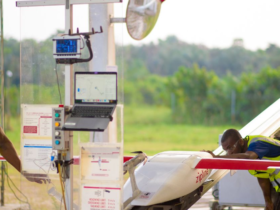In a recent conversation, the Chief Technology Officer at Deimos discussed the increasing cyber threats in Africa, focusing on Nigeria and South Africa. These countries are particularly vulnerable due to their economic significance, high internet adoption rates, and reliance on digital platforms. Challenges such as outdated infrastructure and rapid digital adoption create opportunities for cybercriminals to exploit. An example of a recent cyberattack in Nigeria highlighted vulnerabilities in the fintech sector.
With African governments enforcing data sovereignty laws, businesses face new security risks related to data localization. Concentrating data in local infrastructure makes it a prime target for cybercriminals, necessitating stronger cybersecurity frameworks and compliance measures. Nigerian businesses should prioritize security beyond mere compliance to mitigate risks effectively.
AI-driven cyberattacks are evolving rapidly, with cybercriminals using AI to outmaneuver security systems. AI-powered phishing campaigns and deepfakes pose significant threats, requiring businesses to adopt multi-layered defense strategies and invest in AI-powered cybersecurity tools. Businesses must enhance employee training to combat AI-driven attacks effectively.
The rise of Cybercrime-as-a-Service allows low-level hackers to launch sophisticated attacks, shifting the cybersecurity landscape for African businesses. To counter this, businesses must adopt a proactive cybersecurity approach, leveraging threat intelligence and collaborating with security partners. The increasing link between climate change and cybersecurity risks necessitates integrating cybersecurity into disaster recovery planning.
Nigeria’s booming blockchain and DeFi sector face security threats due to vulnerabilities in smart contracts and wallet security. To mitigate risks, businesses must prioritize secure key management, least privilege access, and advanced observability. The top three immediate actions for businesses include adopting a proactive cybersecurity strategy, enhancing employee training, and securing infrastructure.
Looking ahead, African businesses should prepare for emerging cybersecurity threats driven by AI advancements. AI in social engineering attacks, deepfakes, and AI-powered malware pose significant risks, requiring businesses to invest in AI-driven defensive tools and proactive security measures. Adapting now will help organizations navigate the evolving cybersecurity landscape effectively.
















Leave a Reply